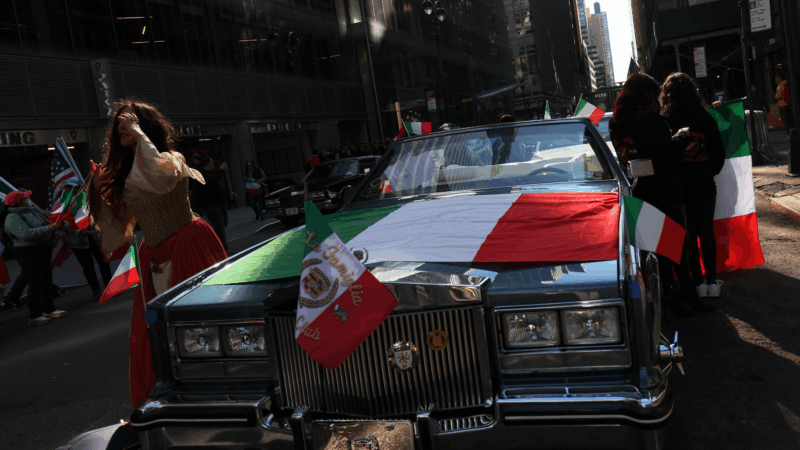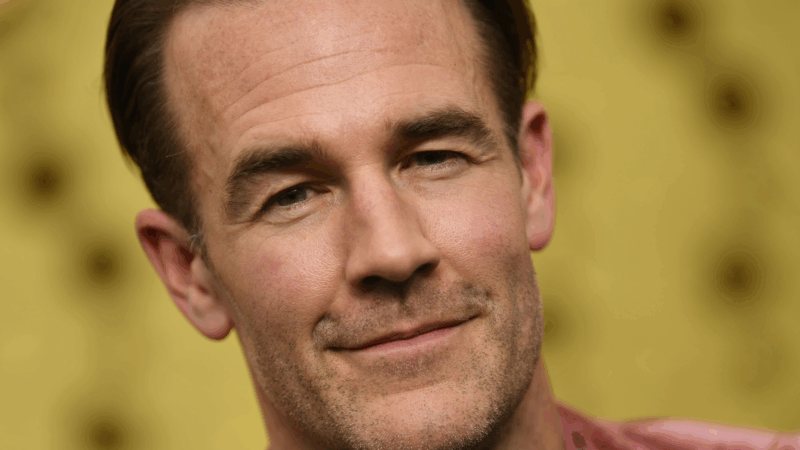Why Trump is talking about bringing Columbus Day ‘back from the ashes’
Columbus Day is currently one of 11 holidays recognized by the federal government. But President Trump says he’s bringing the commemoration of the Italian explorer’s 1492 journey to the “New World” “back from the ashes.”
In a Sunday Truth Social post, Trump said he wants Christopher Columbus to make a “major comeback” in the United States.
“I am hereby reinstating Columbus Day under the same rules, dates, and locations, as it has had for all of the many decades before!” Trump wrote.
However, Columbus Day has been an official federal holiday for nearly a century, with many government workers getting the day off each year.
Many people now celebrate Indigenous Peoples Day too. Trump’s predecessor Joe Biden became the first U.S. president to recognize Indigenous Peoples Day as a national observance on the same date as Columbus Day, acknowledging the contributions of the country’s Native American populations.
Some Italian American groups praised Trump’s weekend message, with one calling it “profoundly symbolic.”
Here’s what to know about the ongoing cultural clash between the two holidays.
How Columbus Day fell out of favor
The first official celebration of Columbus’ voyage across the Atlantic occurred in 1892, during a period of widespread anti-Italian sentiment in the U.S. A year earlier, 11 Sicilian immigrants were lynched in New Orleans in response to the killing of the city’s police commissioner.
Columbus Day became an official federal holiday in 1934 during President Franklin D. Roosevelt’s administration. Since 1970, it has occurred annually on the second Monday in October.
But over the last half century, the legacy of the historical figure, who landed in what is now the Bahamas in 1492, has been tarnished. He’s been condemned for bringing deadly diseases to the Americas, which decimated the Indigenous population and opened the door for centuries of European exploitation.
Shannon Speed, a citizen of the Chickasaw Nation and director of the UCLA American Indian Studies Center, told NPR in 2019 that much more is known now about what the Renaissance explorer and his party did after their ships made landfall. It included “pillaging, raping and generally setting in motion a genocide of the people who were already here,” Speed said. “That’s not something we want to celebrate. That’s not something anyone wants to celebrate.”
Souring attitudes toward Columbus have led some city and state governments to change the name of the holiday or not recognize it at all. A 2023 review conducted by the Pew Research Center found that only 16 states and the U.S. territory of American Samoa still recognized the second Monday in October as an official public holiday called Columbus Day.
The shifting mood — particularly after the racial justice protests of 2020 — also prompted some jurisdictions to remove statues of the explorer, including Ohio and New Jersey. A 2021 analysis conducted by the Washington Post and MIT found that at least 40 monuments to Columbus had been dismantled since 2018. More than 130 such monuments remained, the Post reported.
What is Indigenous Peoples Day?
The idea of Indigenous Peoples Day was first suggested in 1977 by participants of the United Nations International Conference on Discrimination against Indigenous Populations in the Americas.
“It can be a day of reflection of our history in the United States, the role Native people have played in it, the impacts that history has had on native people and communities, and also a day to gain some understanding of the diversity of Indigenous peoples,” Mandy Van Heuvelen, then the cultural interpreter coordinator at the Smithsonian’s National Museum of the American Indian, told NPR last year.
In his 2021 proclamation, President Biden said he was acknowledging the “significant sacrifices made by Native peoples to this country — and recognize their many ongoing contributions to our Nation.” (Biden also issued proclamations marking Columbus Day, most recently last year.)
Trump and others weigh in
In his post on Sunday, Trump blamed Democrats for doing “everything possible to destroy Christopher Columbus, his reputation, and all of the Italians that love him so much.” He added: “They tore down his Statues, and put up nothing but ‘WOKE,’ or even worse, nothing at all!”
Several Italian American groups cheered Trump’s comments.
The Order Sons and Daughters of Italy in America said in a Facebook post that it was “deeply grateful” to Trump and that the recognition was “profoundly symbolic for the Italian American community.”
“Columbus Day holds special importance to Italian Americans, as it represents not only our history, but also the resilience of our community in the face of anti-Italian American discrimination,” the group said.
Robert Allegrini, president and CEO of the National Italian American Foundation, applauded what he called Trump’s “commitment to preserving and enhancing the celebration of Columbus Day” in a post on X.
‘Dawson’s Creek’ star James Van Der Beek has died at 48
Van Der Beek played Dawson Leery on the hit show Dawson's Creek. He announced his colon cancer diagnosis in 2024.
A Jan. 6 rioter pardoned by Trump was convicted of sexually abusing children
A handyman from Florida who received a pardon from President Trump for storming the U.S. Capitol on Jan. 6, 2021, was convicted on state charges of child sex abuse and exposing himself to a child.
A country-pop newcomer’s debut is your reinvention album of 2026
August Ponthier's Everywhere Isn't Texas is as much a fully realized introduction as a complete revival. Its an existential debut that asks: How, exactly, does the artist fit in here?
U.S. unexpectedly adds 130,000 jobs in January after a weak 2025
U.S. employers added 130,000 jobs in January as the unemployment rate dipped to 4.3% from 4.4% in December. Annual revisions show that job growth last year was far weaker than initially reported.
Greetings from Mexico City’s iconic boulevard, where a dog on a bike steals the show
Every week, more than 100,000 people ride bikes, skates and rollerblades past some of the best-known parts of Mexico's capital. And sometimes their dogs join them too.
February may be short on days — but it boasts a long list of new books
The shortest month of the year is packed with highly anticipated new releases, including books from Michael Pollan, Tayari Jones and the late Nobel laureate Mario Vargas Llosa.






